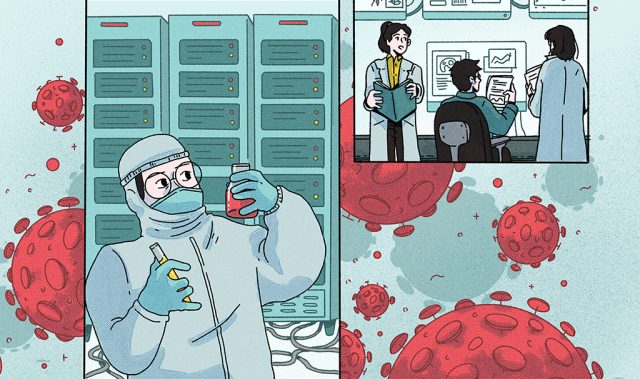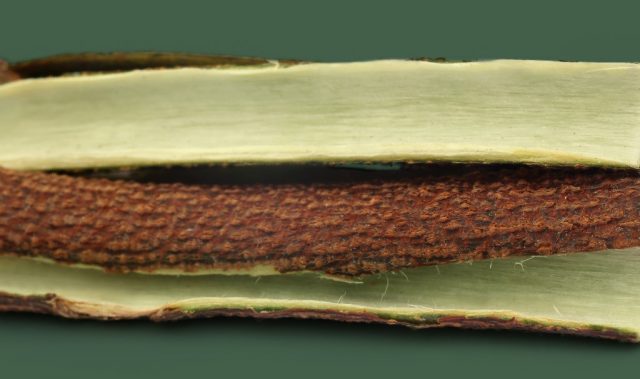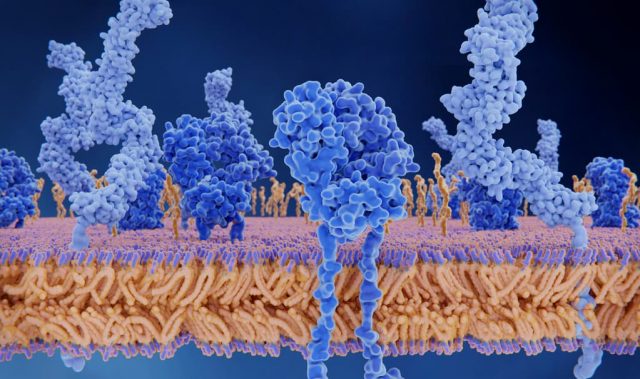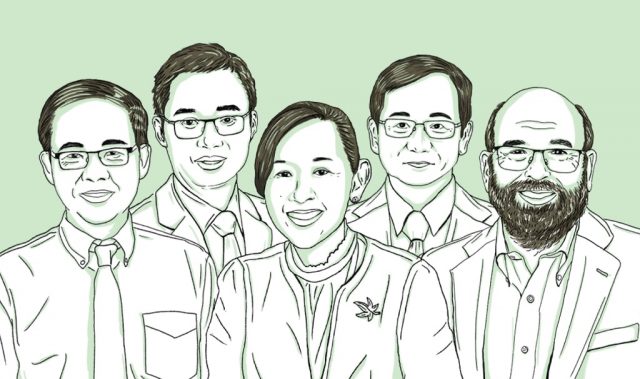
Asian Scientist Magazine (Aug. 21, 2023) — Growing evidence shows that pregnant women who contract SARS-CoV-2, the virus causing COVID-19, particularly during the later stages of pregnancy, face a significantly higher risk of maternal health issues such as preeclampsia, pre-term birth and stillbirth. Since the virus is rarely detected in the placental tissue or the fetus, the complications likely arise from the mother’s immune responses to the infection. However, the underlying molecular mechanisms that link adverse pregnancy outcomes with COVID-19 were unclear.
A groundbreaking study, conducted by researchers in Hong Kong, has revealed that substantial molecular changes occur at the maternal-fetal interface (MFI)—where the mother’s body interacts with the fetus in the placenta—as the mother’s body fights COVID-19 infection. Their findings published in Nature Cell Biology could potentially guide the development of targeted therapeutic strategies to protect both the mother and the developing fetus.
The team analyzed MFI samples from seven healthy donors and seven patients who were diagnosed with COVID-19 during their late pregnancy. To distinguish the effect of the maternal immune response from a direct viral infection, the researchers verified that the patient samples were virus-free during the analysis.
The results showed that SARS-CoV-2 triggers a heightened immune response at the MFI by enhancing the expression of harmful molecules called interferons. This enhanced expression could potentially place the fetus at risk of inflammation, oxygen deprivation and oxidative stress. Additionally, the researchers noted a dysregulation of angiogenesis genes, which could result in abnormal blood vessel formation in the placenta and potentially restrict fetal growth.
Moreover, the researchers found that SARS-CoV-2 could affect placental development by disrupting the regulation of pregnancy-related genes. Retrotransposons, a kind of genetic component, were found to be dysregulated in the placental cells of the patients who had COVID-19. This dysregulation in turn reduced the expression of pregnancy-specific glycoprotein (PSG) genes, which control essential processes like facilitating blood vessel formation between the placenta and the mother’s uterus, immune modulation, and overall placental development.
Professor Liona Poon, Chairperson of the Department of Obstetrics and Gynaecology at The Chinese University of Hong Kong’s Faculty of Medicine, who co-led the study, said that these findings show that the detrimental effects of COVID-19 on maternal and perinatal outcomes are real. She highlighted the importance of early intervention and strongly recommended women who are planning to have kids to get vaccinated.
“As we are coming out of the pandemic, the desire to get tested goes down. I would suggest that pregnant women with symptoms must get tested by the rapid antigen test and inform their healthcare providers so that relevant advice and antenatal follow up, including increased fetal growth surveillance, are provided,” Poon stressed.
—
Source: The Chinese University of Hong Kong; Image: Shelly Liew/ Asian Scientist Magazine
The article can be found at Single-cell analysis reveals transcriptomic and epigenomic impacts on the maternal–fetal interface following SARS-CoV-2 infection.
Disclaimer: This article does not necessarily reflect the views of AsianScientist or its staff.












